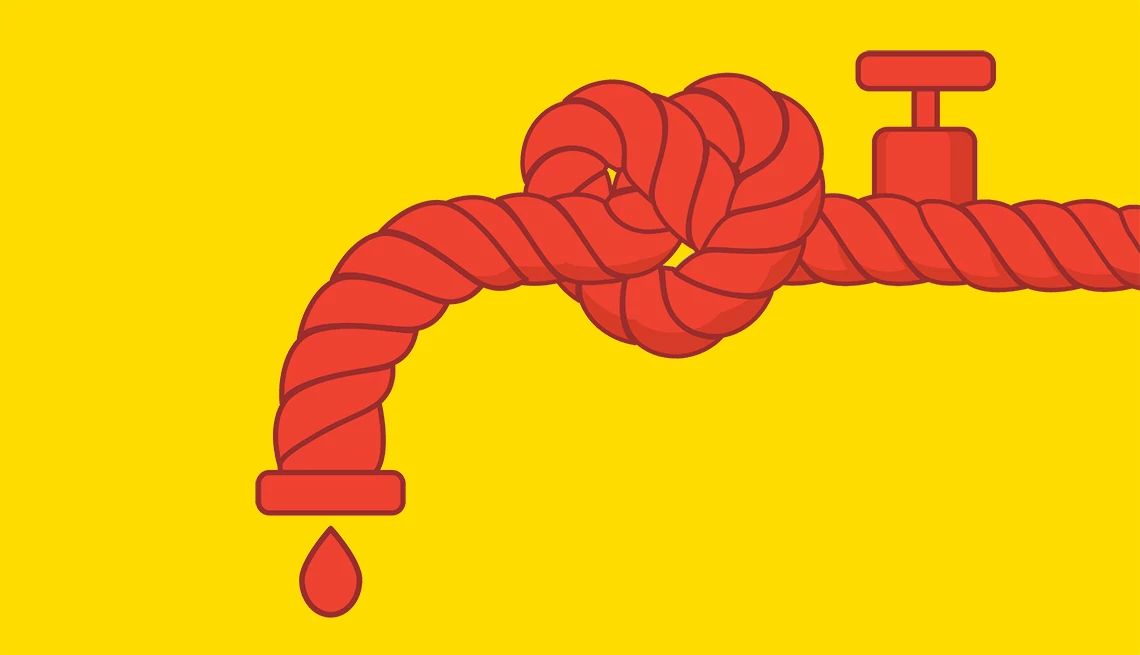AARP Hearing Center


It’s not just your back, legs and joints that become less limber as you age. Tissues in the heart can also endure some wear and tear over the years, causing them to become stiffer.
In some people, these changes can lead to a common cardiac condition known as a leaky heart valve, and if left unchecked, it can become serious, even leading to heart failure.
Here’s what you need to know about leaky heart valves, including the warning signs that could signal your ticker is in trouble.
What is a leaky heart valve?
The heart has four valves, “and the valves just have one job: to open and close so that blood keeps moving forward,” says Marc Gillinov, M.D., department chairman of thoracic and cardiovascular surgery at the Cleveland Clinic.
6 warning signs of a leaky heart valve
- Fatigue
- Heart palpitations
- Shortness of breath
- Swelling in the legs and feet
- Coughing
- Chest pain or pressure
Source: Cleveland Clinic
If one of the valves opens at the right time but doesn’t close when it’s supposed to, blood can leak backward instead of moving forward, meaning less oxygenated blood gets pushed out to the brain, liver, kidneys and all the organs that depend on a fresh supply.
“This means your heart has to work harder” to make up the difference, “which can cause major problems,” says Joanna Chikwe, M.D., a professor of cardiac surgery at Cedars-Sinai in Los Angeles.
Some of these problems can include an irregular heart rhythm known as atrial fibrillation (Afib), pulmonary hypertension and heart failure.
According to the Mayo Clinic, an estimated 10 percent of adults over the age of 75 have the most common type of leaky heart valve, known as mitral valve regurgitation, which occurs when the mitral valve does not close properly. The three other types of leaky heart valves include aortic valve regurgitation, tricuspid valve regurgitation and pulmonary valve regurgitation.
What causes a leaky heart valve?
In addition to age-related changes that take place in the heart — “It’s just like a car getting miles on it,” says Ahmet Kilic, M.D., associate professor of cardiac surgery and program director of the Johns Hopkins Cardiothoracic Surgery Residency Program at Johns Hopkins Medicine — other causes of a leaky heart valve can include:
- Heart damage from a previous heart attack
- Congenital heart disease, or a birth-related defect
- Heart tumors
- Rheumatic heart disease, or damage from rheumatic fever
- Endocarditis, or inflammation of the lining of the heart valves, often from a bacterial infection.
High blood pressure can also contribute to a leaky heart valve, Kilic says.

































































More From AARP
12 Superfoods for Heart Health
Lower your blood pressure, fight inflammation and slash stroke risk
Know the Warning Signs of a Ministroke (TIA)
Roughly 240,000 Americans a year have a transient ischemic attack, sometimes called a ministroke
My Heartbeat Feels Off
If you're experiencing increasingly frequent palpitations, fainting, dizziness, unusual sweating, lightheadedness or chest pains, consult your doctor right away.